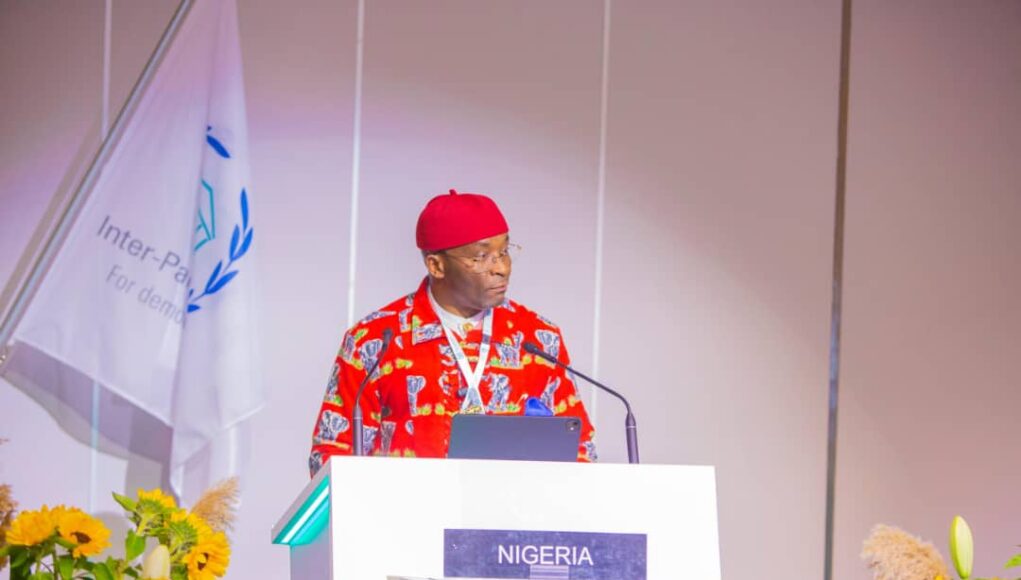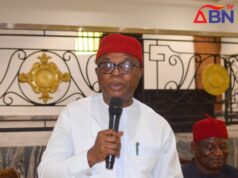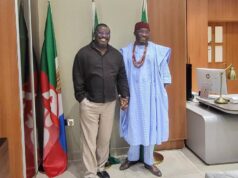In a bid to harness the potential of Artificial Intelligence (AI) while ensuring the protection of democracy, the Deputy Speaker of the House of Representatives, Rt. Hon. Benjamin Okezie Kalu has said that Nigeria is taking measures towards achieving responsible use of the technology.
He said that under the present administration, the country is also working towards the adoption of a National Artificial Intelligence (AI) Policy Framework.
Kalu emphasized that the policy will pave way for the ethical use of AI in addressing key challenges, from automating agricultural processes to enhancing healthcare delivery.
The Deputy Speaker made the disclosure on Monday while addressing the global various delegates at the ongoing 149th Inter-Parliamentary Union (IPU) General Debate with the theme “Harnessing Science, Technology, and Innovation (STI) for a More Peaceful and Sustainable Future” in Geneva, Switzerland.
Kalu said that the theme resonated deeply with Nigeria’s ongoing journey toward building an equitable and prosperous society, where technological advancements are at the forefront of the country’s development agenda, his Chief Press Secretary, Levinus Nwabughiogu said in a statement.
He said: “Our legislative and executive actions clearly reflect Nigeria’s commitment to harnessing STI. In 2022, Nigeria’s parliament passed the Nigeria Startup Act, a landmark legislation aimed at engineering a conducive environment for technology and innovation startups. The Act provides a legal framework that supports innovation, entrepreneurship, and digital transformation in our country, helping STI startups to thrive. This law also emphasizes public-private partnerships, knowledge transfer, and incentives for investments in emerging technologies.
“Building on this momentum, under the leadership of His Excellency, President Bola Ahmed Tinubu, Nigeria is now working towards the adoption of a National Artificial Intelligence (AI) Policy Framework. Led by our Minister of Communications, Innovation, and Digital Economy, this policy will pave the way for the ethical use of AI in addressing key challenges, from automating agricultural processes to enhancing healthcare delivery.
“We envision a future where AI optimizes wage employment, rather than undermine it, ensuring that automation leads to job creation rather than destruction.
“As digital transformation accelerates, the rise of AI brings both opportunities and challenges. In Nigeria, AI is emerging as a powerful tool in sectors
such as governance, financial services, and public administration. Yet, as with any technological leap, we must be mindful of the risks.
“Artificial Intelligence, while enhancing efficiency, raises concerns about data protection, misinformation, and job displacement. The integrity of universal electoral processes is a global imperative and recent developments in Artificial Intelligence are posing threats to this, especially the spread of disinformation and cyber vulnerabilities in election systems.
“Irrespective of this, Nigeria continues to support international efforts to develop inclusive, transparent, and ethical AI frameworks that protect human rights and democratic values.
“We call for AI’s responsible use to safeguard the integrity of democratic processes, particularly against threats such as deep fakes and the spread of disinformation”.
Kalu further informed that the policies will also prioritize appropriate legal measures that will protect the rights of the citizens in the use and application of Artificial Intelligence.
“As a country that champions democratic governance, Nigeria seeks to lead in discussions on AI’s role in protecting the rule of law. Our ongoing development of a National AI Policy will establish the legal foundations necessary to protect citizens’ rights while enabling innovation to thrive”, he said.
Acknowledging that STI, despite its immense potential, can widen the gap between developed and developing nations, the Deputy Speaker emphasized that bridging the global technological divide is an urgent task Nigeria is ready to execute while playing its leading role, particularly within the African context.
“As a participant in the African Continental Free Trade Area (AfCFTA), Nigeria is advocating for regional cooperation to create digital economy hubs that can empower African countries to compete globally. Our vision is one where knowledge transfer, capacity building, and infrastructure investments enable us to close the technological gap and ensure that no region is left behind.
“To this end, Nigeria is committed to increasing its investment in digital
infrastructure, particularly in underserved rural areas. We are actively seeking partnerships with global stakeholders to support our efforts in building a resilient STI ecosystem that can accelerate sustainable development and create opportunities for all”, Kalu stressed.










